
For a guy whose job requires him to spend his time in the clouds, Joe Piotrowski is amazingly down to earth. Piotrowski works at the National Aeronautics and Space Administration (NASA)’s Armstrong Flight Research Center (AFRC). The center is located at Edwards Air Force Base in Edwards and Palmdale—both in California. Piotrowski serves as both a lead operations engineer and a mission director. He says, “I work with an instrument known as UAVSAR (Uninhabited Aerial Vehicle Synthetic Aperture Radar). It is used in science experiments that help people learn about volcanoes, thunderstorms, earthquakes, oil spills, landslides, and many other projects. I love my job because I get to be up close and personal with airplanes. But every single day is different with different assignments.” Piotrowski described how far aircraft have come since the Wright brothers successfully flew their Flyer for a minute on a North Carolina beach.
What is UAVSAR? Why was it created?
UAVSAR sends and receives radio waves to the ground to get information about Earth’s different features. Scientists use UAVSAR to see how Earth’s ground depth is changing—to the nearest centimeter. For example, I flew a mission in Maine where we used UAVSAR to study soil moisture. We first flew over the ground before a rainstorm. Then we flew over the ground after a rainstorm to see how much water the ground absorbed. The information we gathered helped to show where potential areas of flooding were and where better places to plant fruits and vegetables are.
This story is from the November/December 2023 edition of Cobblestone American History Magazine for Kids.
Start your 7-day Magzter GOLD free trial to access thousands of curated premium stories, and 9,000+ magazines and newspapers.
Already a subscriber ? Sign In
This story is from the November/December 2023 edition of Cobblestone American History Magazine for Kids.
Start your 7-day Magzter GOLD free trial to access thousands of curated premium stories, and 9,000+ magazines and newspapers.
Already a subscriber? Sign In
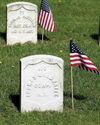
Putting the Pieces Together
Americans needed to begin to put the past behind them, come together, and plan for the future in the spring of 1865. But Abraham Lincoln, the man best equipped to lead them and who had hoped to restore the country as smoothly and peacefully as possible, had been assassinated.
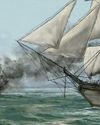
LAST SHOTS
The last Confederate forces in the Civil War didn’t surrender in the spring of 1865 or on a battlefield.
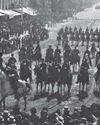
AND IN OTHER 1865 NEWS
A group of African Americans stop at the White House’s annual public reception on January 1, where they shake hands with President Abraham Lincoln.
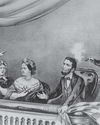
A Plot to Kill President the
For several months, actor John Wilkes Booth’s band of conspirators had plotted to capture President Abraham Lincoln and hold him hostage in exchange for Confederate prisoners.
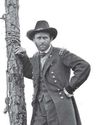
Let the Thing Be Pressed
In June 1864, Union Lieutenant General Ulysses S. Grant began a nearly 10-month campaign in Virginia.
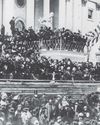
HEALING THE NATION
President Abraham Lincoln took the oath of office for the second time on March 4, 1865.

A Helping Hand
The spring season is hard in any agricultural society. Plants and animals are too small to eat.
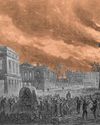
WAR SHERMAN-STYLE
As far as Union Major General William T. Sherman was concerned, the Civil War had gone on long enough.
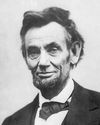
PEACE TALKS
The fall of Fort Fisher made clear that the Confederacy’s days were numbered. Southerners were tired and hungry.
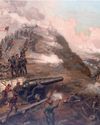
FORT FISHER'S FALL
Outnumbered Confederate soldiers inside Fort Fisher were unable to withstand the approach of Union troops by land and the constant Union naval bombardment from the sea.